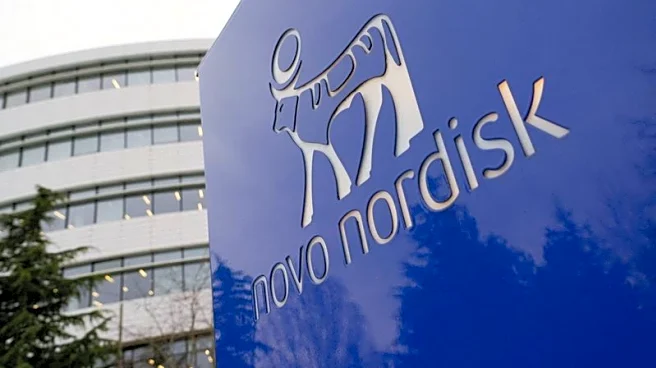What is the story about?
What's Happening?
The Commonwealth Charter Academy (CCA), Pennsylvania's fastest-growing cyber charter school, has experienced significant enrollment growth over the past five years following a strategic decision to sever ties with its for-profit management company, Connections Academy, in 2015. This decision was made amidst internal board conflicts, with some members advocating for independence to retain local tax money and improve operational efficiency. Connections Academy, initially based in Baltimore, was sold to Pearson in 2011, raising concerns about the financial practices of for-profit management companies in the cyber school sector. The move towards autonomy allowed CCA to develop its own curriculum and technology, leading to immediate improvements such as increased salaries, better equipment replacement times, and reduced teacher-to-student ratios. Despite initial challenges, including enrollment stagnation and curriculum dissatisfaction, CCA's independence positioned it well for the rapid student growth during the COVID-19 pandemic.
Why It's Important?
The shift away from for-profit management in cyber charter schools like CCA highlights a broader trend in the education sector, where schools seek greater control over their resources and educational quality. This move is significant as it addresses concerns about taxpayer money being funneled to out-of-state companies and the lack of transparency in financial dealings. By becoming autonomous, CCA and similar schools can potentially offer more tailored educational experiences and improve operational efficiencies, which could lead to better educational outcomes. The decision also reflects a growing skepticism towards for-profit entities in education, which are often criticized for prioritizing profit over student success. This trend could influence public policy and funding decisions, impacting how cyber schools are managed and regulated in the future.
What's Next?
As CCA continues to develop its own curriculum and technology, it may serve as a model for other cyber charter schools seeking independence from for-profit management. The transition could lead to further innovations in cyber education, particularly in addressing challenges such as student procrastination and engagement. Additionally, other schools in Pennsylvania, like Reach Cyber Charter School and Insight PA, have followed CCA's lead by dropping their affiliations with for-profit management companies. This shift may prompt legislative and regulatory changes to support independent cyber schools, ensuring they have the resources and autonomy needed to thrive. Stakeholders, including educators, policymakers, and parents, will likely monitor these developments closely to assess their impact on educational quality and accessibility.
Beyond the Headlines
The move towards independence in cyber charter schools raises ethical and cultural questions about the role of for-profit entities in education. It challenges the notion that private companies can effectively manage public education resources and highlights the importance of transparency and accountability in educational funding. This shift may also influence cultural perceptions of cyber education, as schools demonstrate their ability to provide quality education without relying on external management. Long-term, this trend could lead to a reevaluation of the balance between public and private interests in education, potentially reshaping the landscape of cyber schooling in the U.S.
















